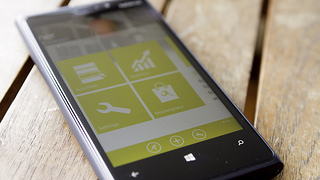Source: HIT Consultant
Mobile health can positively impact patient engagement, clinical outcomes, and operational workflow in remote monitoring programs according to a recent study conducted by the Center for Connected Health. The study found that patients using wireless mobile health devices to collect and transmit their data are more frequently tracked their blood pressure than patients using telephone modem devices.
The study was published in the Journal of Diabetes Science and Technology (Volume 7, Issue 3, May 2013). The Center for Connected Health is a division of Partners HealthCare. Thirty patients from three clinical practices within the Partners HealthCare network participated in the study with a median age of the study population was 61.7 years.The results show wireless devices improves patient engagement due to its:
- ease of use
- real-time transmission of data
- increased device portability within the patients home
The Center offers remote monitoring programs for chronic disease self-management in diabetes, hypertension and heart failure. Two types of data transfer technology are used in the Diabetes Connect and Blood Pressure (BP) Connect programs: telephone modem-based devices and wireless-based devices. Individual patient data is collected and transmitted from the patient’s home to a secured database at Partners HealthCare. The transmitted data are processed and displayed in a user-friendly format on a secure Web portal, where patients can view and monitor trends in their readings. Providers also have access to their patients’ data to monitor patients’ progress and to provide timely feedback based on the objective data captured.
Key finding of the retrospective study include:
- patients enrolled in the BP Connect program using wireless-based devices recorded significantly more frequent blood pressure readings and data uploads than patients using modem-based devices.
- Participants who used a wireless-based device engaged more frequently, and recorded a significantly higher number of measurements per day versus those in the modem-based group (median = 0.66 versus 0.2 measurements/day; p = .01).
- The number of uploads per day was significantly higher in the wireless-based group versus the modem-based group (0.46 versus 0.01 uploads/day; p < .001, respectively).
- Participants who used a wireless device engaged earlier in the program, demonstrated by their significantly lower time to first upload (median = 4 versus 7 days; p = .02).
- Time to first BP measurement, however, did not differ significantly between the groups (median = 2 versus 1 day; p = .98).
 Joseph C. Kvedar, MD
Joseph C. Kvedar, MD“Our findings demonstrate that the less obtrusive the upload process, the better the level of patient engagement, and provides clinicians with timely data to facilitate improved patient-provider communication and more timely intervention. As mobile technologies are becoming more affordable and acceptable, this is an opportune time to widely adopt mobile technology to engage patients in the self-management of chronic diseases,” added Joseph C. Kvedar, MD, Founder and Director, Center for Connected Health
This retrospective analysis was supported by a grant from the Verizon Foundation, which supports technology-enabled patient care programs improving quality and access to care for underserved communities.
The Center for Connected Health had previously reported that the Blood Pressure Connect program decreased systolic BP by 6 mmHg and diastolic BP by 2 mmHg. Just a 5mmHg decrease in blood pressure can reduce mortality due to stroke and heart disease by 14% and 9%, respectively. Patients who engaged in the Diabetes Connect program achieved an average hemoglobin A1c drop of 1.5% over a one year period.
Image credit: Nicola since 1972 via cc

